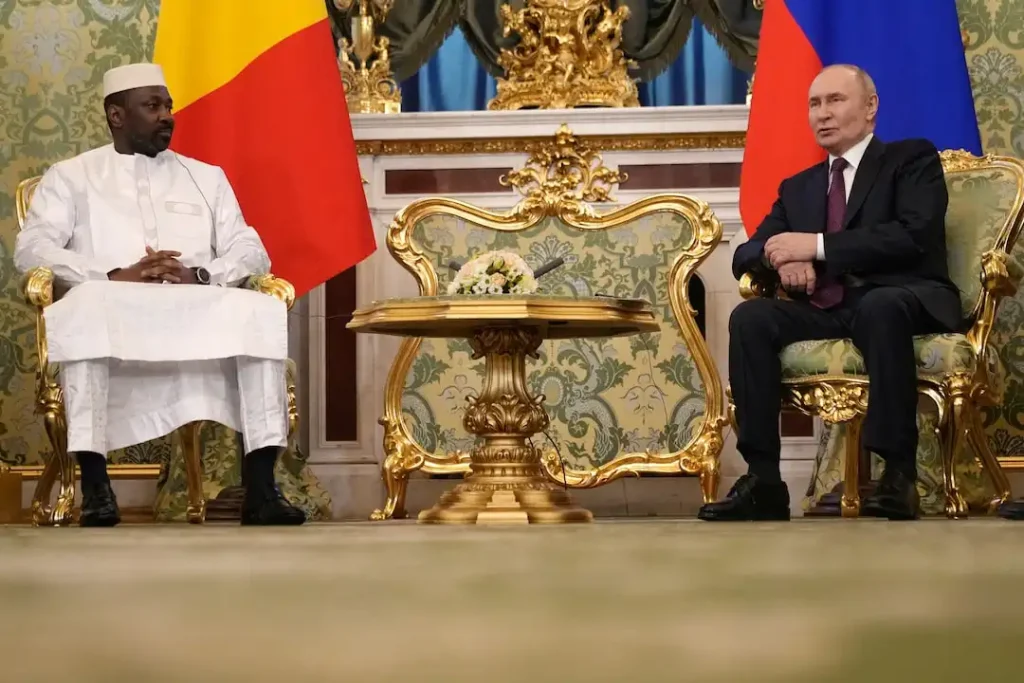Mali and Russia signed landmark agreements on Monday, June 23, 2025, to strengthen economic, trade, and nuclear energy cooperation, marking a new chapter in their bilateral ties.
During a five-day official visit to Moscow, Mali’s interim president, Assimi Goïta, met Russian President Vladimir Putin to finalize deals, including one on the “peaceful use of nuclear energy” and the establishment of an Intergovernmental Russia–Mali Commission for Trade, Economic, Scientific, and Technical Cooperation.
“Our trade numbers are modest but show a positive trend,” Putin said, highlighting potential in geological exploration, energy, logistics, and humanitarian projects.
Goïta echoed the optimism, stating, “We have good cooperation with Russia, reflecting trust between our nations.”
The agreements aim to bolster Mali’s economy amid regional instability and Russia’s growing influence in Africa.
A Strategic Partnership
The deals come as Mali, part of the Alliance of Sahel States, seeks Russian support to combat jihadist insurgencies.
Attacks by groups like al-Qaeda-linked Jama’at Nasr al-Islam wal-Muslimin (JNIM), which killed dozens of soldiers in a recent military base assault, have intensified Mali’s security challenges.
Russia’s Africa Corps, managed by the Kremlin, replaced the Wagner paramilitary group in Mali earlier this year after Wagner’s controversial deployment since 2021.
Beyond security, the agreements focus on economic growth.
Russia is partnering with Mali to develop mining projects, including a Russian-funded gold refinery hailed as a step toward “economic sovereignty” by Goïta.
Posts on social media reflect enthusiasm for these initiatives, with users noting Russia’s plans for a hydrocarbon refinery and cotton processing factory, signaling broader industrial cooperation.
Russia’s African Ambitions
The Kremlin’s push for stronger African ties aligns with its June 2025 pledge to boost economic and military cooperation across the continent.
Mali’s pivot to Russia follows its 2024 withdrawal from ECOWAS, alongside Niger and Burkina Faso, amid tensions with Western powers like France.
The nuclear energy deal, though focused on peaceful uses, raises questions about Mali’s energy ambitions and Russia’s strategic goals in the Sahel.
There are mixed sentiments, with some praising Mali’s shift toward Russia for sovereignty, while others question the long-term implications of Kremlin influence.
“Mali’s partnership with Russia is a bold move for independence,” a netizen wrote, though concerns about past Russian human rights abuses linger.
What’s Next?
As Mali battles jihadist threats and economic challenges, its deepening ties with Russia could reshape the Sahel’s geopolitical landscape.
Will these agreements deliver stability and growth, or deepen regional divides? The world is watching closely.




















